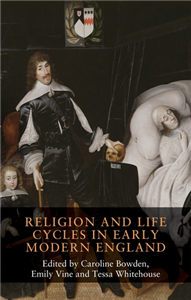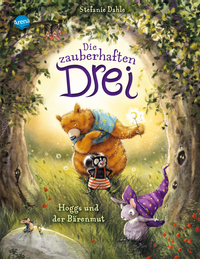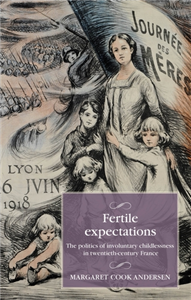Your Search Results
-
The University of Chicago Press
Founded in 1890, the University of Chicago Press is the largest university press in the United States, publishing a distinguished list in Science, Economics, Philosophy, Anthropology, Reference, Sociology, History, Art, and Literary criticism, as well as translations of classic and contemporary works. Publisher of The Chicago Manual of Style, classic works by Kuhn, Friedman, Arendt, Strauss, and Maclean.
View Rights Portal
-
Promoted ContentHumanities & Social SciencesOctober 2021
Religion and life cycles in early modern England
by Caroline Bowden, Emily Vine, Tessa Whitehouse
Religion and life cycles in early modern England assembles scholars working in the fields of history, English literature and art history to further our understanding of the intersection between religion and the life course in the period c. 1550-1800. Featuring chapters on Catholic, Protestant and Jewish communities, it encourages cross-confessional comparison between life stages and rites of passage that were of religious significance to all faiths in early modern England. The book considers biological processes such as birth and death, aspects of the social life cycle including schooling, coming of age and marriage and understandings of religious transition points such as spiritual awakenings and conversion. Through this inclusive and interdisciplinary approach, it seeks to show that the life cycle was not something fixed or predetermined and that early modern individuals experienced multiple, overlapping life cycles.
-
Promoted Content2022
A Healthy Pregnancy with Selected (Micro)Nutrients
by Uwe Gröber
Adequate nutrition and a healthy lifestyle – before and during pregnancy - are of great importance for a trouble-free pregnancy, birth, and the subsequent development of the child. Since the nutritional status before the onset of pregnancy influences both fertility and the course of pregnancy, including complications, the birth and breastfeeding, close attention should be paid to a healthy diet and adequate supply of essential (micro)nutrients well in advance and not only at the family planning stage. Poor micronutrient status prior to conception is often carried over into pregnancy, and can significantly increase the risk of pregnancy complications and, for example, lead to the dreaded spina bifida in the child. This patient guide tells you what you need to know! Various micronutrients are described in detail. Special emphasis is placed on the latest study results concerning pregnancy and nutrition.
-
 Trusted Partner
Trusted Partner
-
 Trusted Partner
2021
Trusted Partner
2021Self-medication in Pregnancy and Breast-feeding
Counselling handbook
by Dr. Annette Abhau
Cough, hay fever or herpes are at least as troublesome during pregnancy and breast-feeding as under normal “conditions” - and yet everything is different. Physiological changes to the body in pregnancy and lactation, together with the vulnerability of the unborn baby or infant, set particular requirements when selecting the correct, safe medication. Especially in the area of self-medication, the needs of pregnant and breast-feeding women for information are great and call for competent advice! This comprehensive handbook is the key: General information about pharmacotherapy, supplementary measures, vaccinations, questions about diet and infections in pregnancy and lactation creates a broad knowledge base. The core feature of the book are the traffic light tables, with precise recommendations for medicinal products for all types of treatment. All the important indications for selfmedication in pregnancy and lactation are listed and the tables are supported by detailed explanations of the individual assessments. The sections “Advice from medical specialists” are particularly useful, with additional tips from gynaecologists and “Footnotes” with relevant information on the use of prescription- only medicines – and as the ultimate practical tool: the enclosed sales counter leaflets with all traffic light tables to enable quick reference for first-class advice!
-
 Trusted Partner
2021
Trusted Partner
2021Drugs in Pregnancy and Lactation
Guidelines for physicians and pharmacists
by Prof. Dr. Klaus Friese, Prof. Dr. Klaus Mörike Prof. Dr. Gerd Neumann and Dr. Wolfgang E. Paulus
The risks in connection with the unborn child and infant when prescribing and dispensing medicinal products are adequately known. However, a sound knowledge of safety issues and precise recommendations – rather than the blanket forgoing of medicinal treatment – is crucial for providing expert, professional advice. To meet this special responsibility, a reliable source of information is essential. The now ninth edition of this standard reference work provides the necessary professional knowledge not only for all physicians and pharmacists who wish to support their pregnant and breast-feeding patients through competent advice, but also for midwives: - Information about embryonal development and developmental disorders - Well over 1000 drug substances with all important medicinal products, assessed individually - Classification according to FDA and ADEC - Differentiated risk assessment, based on current literature - Personal recommendations of the experienced and well-known team of authors from the realms of gynaecology, paediatric medicine and clinical pharmacology. The new edition contains many new assessments from current studies.
-
 Trusted Partner
Children's & YA
Trusted Partner
Children's & YAThe Enchanting Three (1). Hoggs and Bear Courage
by Stefanie Dahle
Hoggs the bear would love to be brave. But he is afraid of spiders and ghosts. And so Hoggs and his best friend Poki the skunk decide to go on an adventure in order to practise being brave. They head for the abandoned witch’s house behind the bee field. Ugh, it’s certainly ghostly! In fact there’s a kettle bubbling quite scarily…”Anybody there?” asks Hoggs cautiously. Yes! Fips the rabbit urgently needs help. And – whoosh! – suddenly the friends find themselves right in the middle of a stormy but magical adventure…
-
 Trusted Partner
The ArtsMarch 2008
Trusted Partner
The ArtsMarch 2008Holy motherhood
Gender, dynasty and visual culture in the later middle ages
by Elizabeth L'Estrange, Steve Rigby
This study brings images of holy motherhood and childbearing into the centre of an art-historical enquiry, showing how images worked not only to script and maintain gender and social roles within patriarchal society, but also to offer viewers ways of managing those roles. Some of the manuscripts discussed are relatively unknown and their images and texts are made available to readers for the first time. Through an adaptation of Baxandall's 'period eye', the study considers the many 'cognitive habits' acquired by aristocratic lay women - and men - through familiarity with prayers for childbirth, the lying-in ceremony and the rite of churching. It then uses this methodology to interpret the images and prayers in six bespoke manuscripts, including the Fitzwilliam Hours and the Hours of Marguerite of Foix. The book will appeal to advanced students, academics and researchers of Art History, Illuminated Manuscripts, Medieval History and Gender Studies. ;
-
 Trusted Partner
2022
Trusted Partner
2022Pharmacology for Midwives
Principles, theory and practice
by Dr. Philipp Kircher, Elisabeth Remplik and Dr. Peter Killian
Midwives use drugs on their own authority, or guide and support pregnant and breastfeeding women in their therapy. At the same time, the giving of drugs during pregnancy and lactation frequently entails a balancing act between medical need and experience on the one hand and often the absence of studies with evidence of harmlessness and safety on the other. Anyone who wants to make the correct decisions and deal responsibly with this dilemma can only do so on the basis of solid knowledge. This new reference book provides ideal preparation and imparts the necessary information: - General advice on the handling of drugs and the principles of pharmacology - Description of common drug substances and particular aspects of their use in pregnancy, childbirth and lactation - Treatment options from complementary medicine and phytotherapy - Advice about correct diet The clear and concise presentation of facts as well as numerous illustrations make it easier to understand and grasp the content. Text boxes highlight important elements or refer the reader to interesting additional information: The textbook and reference work for students, practical training and everyday work!
-
 Trusted Partner
Humanities & Social SciencesJune 2024
Trusted Partner
Humanities & Social SciencesJune 2024Birth controlled
Selective reproduction and neoliberal eugenics in South Africa and India
by Amrita Pande
This book analyses the world of selective reproduction by a critical analysis of three modes of controlling birth, namely contraception, reproductive violence, and repro-genetic technologies. All population control policies target and vilify women (Black women in particular), and coerce them into subjecting their bodies to state and medical surveillance; Birth controlled argues that assisted reproductive technologies and repro-genetic technologies employ a similar and stratified burden of blame and responsibility based on gender, race, class and caste. The book draws on gender studies, sociology, medical anthropology, politics, science and technology studies, theology, public health and epidemiology to provides a critical, interdisciplinary and cutting-edge dialogue around the interconnected issues that shape reproductive politics in an ostensibly 'post-population control' era.
-
 Trusted Partner
Trusted Partner
-
 Trusted Partner
December 2012
Trusted Partner
December 2012Misery Bear's Leitfaden für die Liebe
Die Erlebnisse des einsamsten Bären der Welt
by Misery Bear / Deutsch Bausum, Christoph
-
 Trusted Partner
Trusted Partner
-
 Trusted Partner
1992
Trusted Partner
1992Die neun Zahlen des Lebens
Das Enneagramm - Charakterfixierung und spirituelles Wachstum
by Jaxon-Bear, Eli / Englisch Lorenz, Sabrina
-
 Trusted Partner
Trusted Partner
-
 Trusted Partner
The ArtsDecember 2022
Trusted Partner
The ArtsDecember 2022D. W. Griffith's The Birth of a Nation
by Jenny Barrett, Douglas Field, Ian Scott
-
 Trusted Partner
Trusted Partner
-
 Trusted Partner
Trusted Partner
-
 Trusted Partner
Trusted Partner
-
 Trusted Partner
Humanities & Social SciencesMay 2025
Trusted Partner
Humanities & Social SciencesMay 2025Fertile expectations
The politics of involuntary childlessness in twentieth-century France
by Margaret Cook Andersen
An engaging history of motherhood, demography, and infertility in twentieth-century France, this book explores fraught political and cultural meanings attached to the notion of an "ideal" family size. When statistics revealed a sustained drop in France's birthrate, pronatalist activists pushed for financial benefits, propaganda, and punitive measures to counter declining fertility. Situating infertility within this history, the author details innovations in fertility medicine, cultural awareness of artificial insemination, and changing laws on child adoption. These practices offered new ways of responding to infertility and formed part of a growing expectation of being able to control one's fertility and family size. This book presents the political and cultural context for understanding why private questions about when to start a family, how many children to have, and how to cope with involuntary childlessness, evolved and became part of state demographic policies.
-
 Trusted Partner
Trusted Partner

























